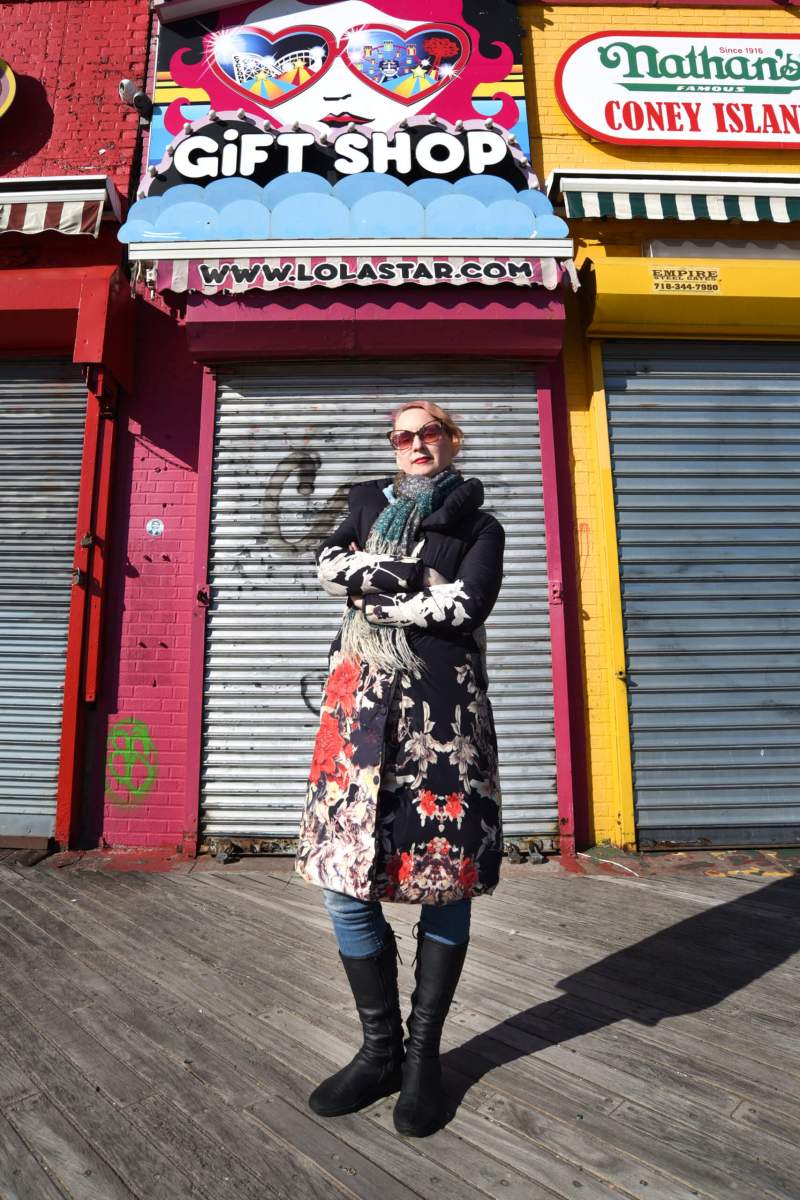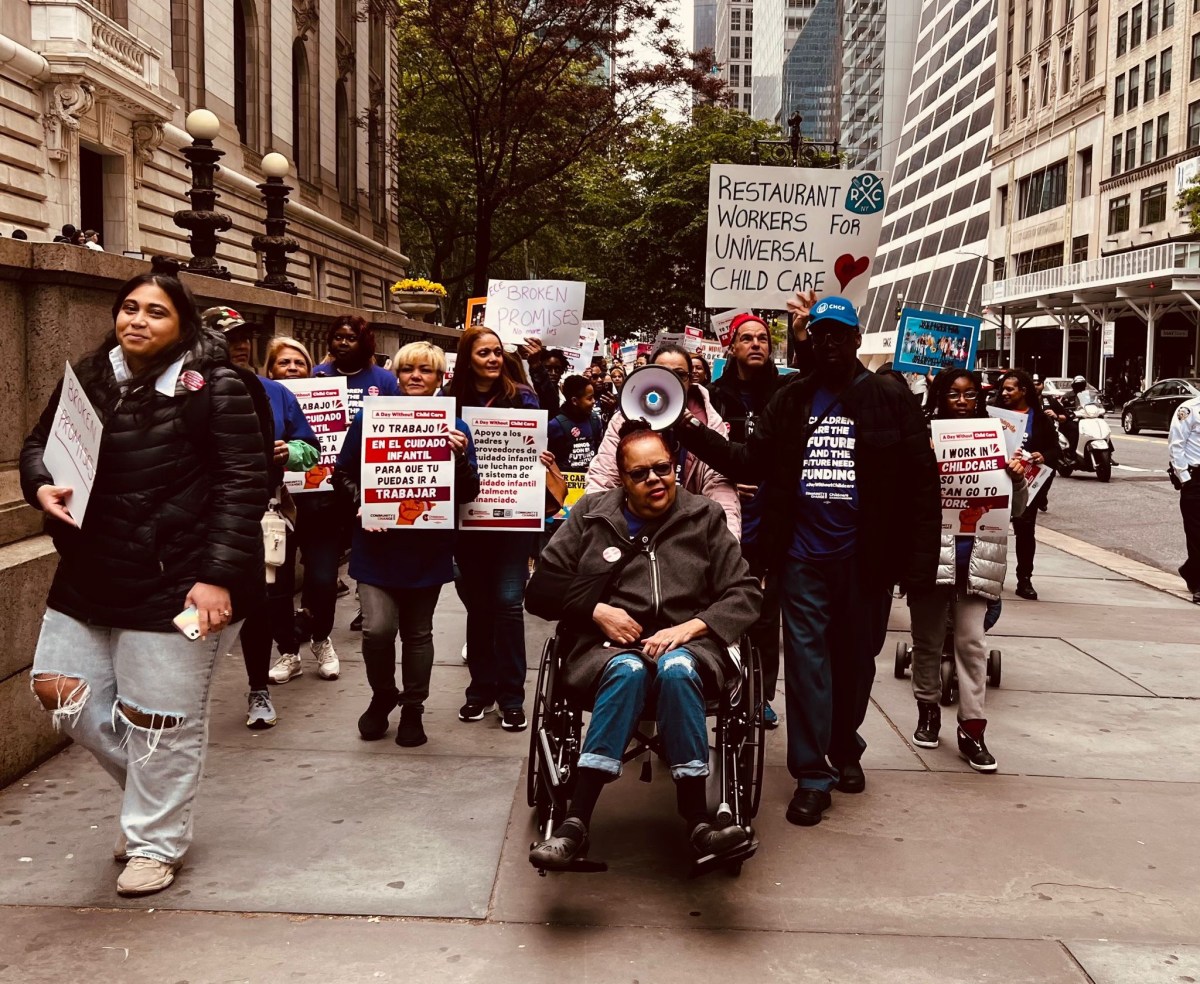A Coney Island souvenir shop will shutter in the wake of a massive rent hike at the hands of Luna Park’s international landlord, according to the owner.
Dianna Carlin — who’s owned Lola Star Souvenir Boutique on the Coney Island boardwalk for 19 years — has spent months negotiating a rent increase with the amusement park’s landlord, Zamperla, after the Italian corporation demanded a 500-percent rent hike, she claimed.
Carlin hoped to hammer out a deal at a final meeting with Zamperla on Tuesday, but the corporation would only allow a 400-percent hike, which the business owner said would destroy her small t-shirt shop.
“At the meeting, I offered them double the rent I was paying previously. That is a 100-percent rent increase and they flatly refused,” Carlin said. “They did not decrease their offer to less than the 400-percent rent increase they have been demanding for the past few months…I’m heartbroken to say that means my business will be leaving Coney Island.”
Zamperla — the Italian corporation that operates the six-acre amusement district on behalf of the city — first announced the rent increases facing six Riegelmann Boardwalk businesses in November, two months before the tenants’ eight-year leases were set to expire.
Five of the businesses, including 85-year-old Ruby’s Bar and Grill and 57-year-old Paul’s Daughter, negotiated agreements with Zamperla by the Dec. 31 deadline. Some insiders say that the other tenants received smaller rent increases than Carlin.
“I believe the deal was fair,” said one business owner, who claimed he faced a 25- to 75-percent rent hike. “I would’ve liked to pay less, but I believe it was a fair deal.”
Carlin, unable to pay the 400-percent hike, received two extensions to continue working out a rent increase with Zamperla, but the extra time didn’t yield any results, she said.
“It’s heart breaking. I’ve built a successful business over the past 19 years. I started it with nothing,” she said on Tuesday. “I created a truly unique business based on my art products I design and hand print in Brooklyn.”
The Bloomberg administration awarded Zamperla a ten-year lease in 2010 to revamp the Coney Island amusement park and boardwalk businesses, which was later extended. In 2011, Zamperla tried to oust all eight boardwalk business — including Lola Star and Ruby’s Bar and Grill — but kicked out only five after facing public pressure.
Carlin and others have accused Zamperla of unethical business practices, such as forcing tenants to hand over 10 percent of their sales and to sign non-disclosure agreements.
“It’s one thing for private landlords to have non-disclosure agreements, but it’s another thing when the city and the City Council issues non-disclosure agreements,” said civil rights lawyer Norman Siegal at a Dec. 5 rally at City Hall against the rent hikes. “What do you have to hide?”
However, the executive of Zamperla said that Carlin had been paying below market rate for her tiny shop, and claimed the increased rent matches the property’s current market value.
“Lola Starr’s lease rate had not been increased for almost ten years, was considerably below market value and significantly lower than neighboring tenants,” said Alessandro Zamperla in a statement. “Moreover, her refusal to share revenue information (as all of the other tenants did in connection with their renewals and as commercial tenants typically do) made it impossible to justify Lola Starr’s offer, which was substantially lower than market value.”
But Carlin — who also operates a Lola Star store in Queens and the Dreamland Roller Rink in Downtown Brooklyn — says that she plans to take legal action against the Italian company.
“I told them I was really hoping to find an amicable solution before it became an ugly legal battle but they didn’t care,” she said on Tuesday. “I am not leaving without a fight.”
The executive of Zamperla, however, argued that























